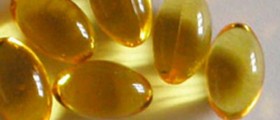
Primrose oil is obtained from the seeds of the evening primrose plant which blooms when the evening takes over in the summer time and dies with the onset of day, as a consequence of the sun exposure. A temperate climate is most suitable for the growth of this plant. The oil is obtained from the winter primrose plant seeds, which can be even 5 cm long. The primrose oil has many health benefits, but a couple of side effects also.
Uses of primrose oil
The primrose oil is natural source of the omega-6 fatty acid, branded as gamma-linoleic acid in the medical circles. It is essential to include this acid in our everyday diet since our body is not capable to produce it by itself. The omega-6 fatty acid upon entering the body converts into the prostaglandins, which behaves as the substitute for many hormones thus enabling good functioning of the body.
Primrose oil supplements are mainly used by those women who have problems with menstrual cramps and mood swings during their menstrual cycles, as well as for relieving the symptoms of fibrocystic breasts, such as the breast tenderness and pain.
The primrose oil is also used for the treatment of many skin disorders like eczema, acne and rosacea. Due to the anti-inflammatory properties, arthritis, asthma and many other inflammatory diseases are successfully treated by the primrose oil.
Side effects of primrose oil
Even though the benefits of this oil are numerous, it still has several adverse effects which are not serious, but every person should know them before deciding to use it for treatment of some ailment.
Headache and nausea are the two most commonly occurring side effects of the primrose oil. Furthermore, the supplements of this oil may cause certain gastrointestinal disorders, such as bloating and diarrhea. These symptoms are the most common ones and they disappear shortly, but if they persist, a doctor should be informed about it.
The primrose oil can exhibit side effects if it used along with certain other medicines. For example, the people who suffer from schizophrenia and who take phenothiazine epilepogenic medicines are prone to experience temporal lobe epilepsy if they use primrose oil at the same time. The primrose oil should not be combined with anesthesia and it should not be consumed at least 3 weeks before a surgery.
The expecting mothers and those who are breastfeeding their babies should stay away from the primrose oil supplements since they may cause premature labor and impair the normal production of breast milk.

















Your thoughts on this
Loading...